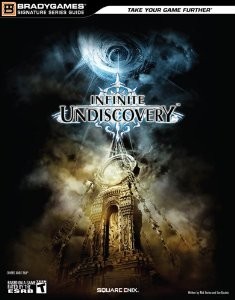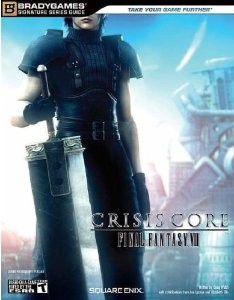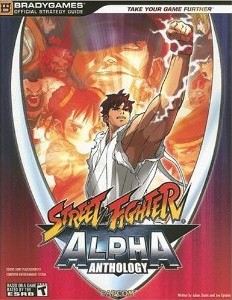 Joe Epstein is a co-author for several guides I own, including Final Fantasy Dissidia, Crisis Core, and NIER. Despite his busy guide writing schedule and his multiple hard drive failures, he has graced me with an interview.
Joe Epstein is a co-author for several guides I own, including Final Fantasy Dissidia, Crisis Core, and NIER. Despite his busy guide writing schedule and his multiple hard drive failures, he has graced me with an interview.
Which strategy guide company do you write for, or are you a freelancer?
Like most guide authors, I’m a freelancer.
How did you get into guide writing?
A manifold answer, here. For as long as I can remember I’ve read and written a lot – when I was about ten years old I noticed a hardcover of Stephen King’s “It” in my parents’ bookshelf, thought the dust jacket looked interesting, and asked if I could read it. My parents, probably somewhat amused, said sure. So I did, and I haven’t stopped reading since. All sorts of stuff, from an infatuation with King that sustained my teen years, to classic authors like Steinbeck and Hemingway, to poets like Service and Eliot, to foreign authors like Camus and Lem, to nonfiction like Feynman on physics or Sagan on astronomy. So I love reading, writing, and literature, and always felt I’d do something with writing. This dovetails into part two of this answer, my actual “in,” which was covered about a while ago on a blog entry I wrote for the BradyGames Facebook page:
http://www.facebook.com/#!/note.php?note_id=76452124092
What elements do you like to personally ensure go into a guide?
Everything we can reasonably include. Gamers buy guides for all kinds of reasons. Some people just want a walkthrough in case they get stuck, others want to make sure they don’t miss any secrets, and some people want a collectors’ piece to accompany the game. For my part, I’m most interested in game systems. Combat mechanics, finding out if there are any ways to beat the system. Some authors and gamers play for story, or art, but I’m most interested in finding all the rules, then finding out if they can be broken. I usually write the ‘game basics’ sections on books I work on, and I try to make them as thorough as possible. In the same way that I regard chess for its rules and not for the aesthetics of the pieces, or poker for its nuance and not for the designs on the cards themselves, I am most interested in games for – surprise! – their ‘game’ aspects.
 What do you think separates a great guide from a horrible one?
What do you think separates a great guide from a horrible one?
This question implies quite a wide gulf. I can’t think of any guides I consider horrible. Every one I’ve seen has been at least serviceable, if not exceptional. What separates one from the other in my experience is developer assistance, and time. While we almost always get some sort of help, we get in-depth resources less frequently than you’d think. It’s understandable; by the time a game is in final approvals and approaching gold status, the main developers, artists, and programmers who slaved over it have likely moved on to new projects and aren’t necessarily cultivating reams of minutiae for a game they’ve just spent two years on. When detailed data is organized and available, though, it’s a boon. As for time, well. It’s just the nature of the beast that we never have much time, for obvious reasons. Sometimes the crunch is worse than others, and I wish we had time to make every book perfect, but that’s just not the way the industry is set up.
When you first start on a guide project, what are some prewriting steps you like to take in addition to playing the game?
The only thing I like to do at first is play the game as much as I can. It’s virtually impossible to know what’s important to discuss and cover initially beyond the generic trappings of a given genre, so familiarity is the most important thing. Nothing is a substitute for front-to-back knowledge of the game. I take a lot of screenshots for the duration, but do very little writing at first. Apart from that, I assemble templates for the documents based on what I believe we’ll need to include, but I usually end up changing them.
Can you take us through the general process of what it takes to develop and publish a guide?
The first step is to get ahold of the game, of course, preferably in final or near-final form. This can be tricky and it’s here the time crunch starts, as game development usually goes down to the wire. With a playable build in hand, authors must try to grok the game as quickly as possible. Consider that oftentimes in RPGs, the game doesn’t really become “the game” until 20 hours in or further…subsystems aren’t introduced until well into the game, the combat engine doesn’t approach its full scope, the overall thrust of the story isn’t apparent, and so on. We frequently won’t really have any idea of what’s crucial to include until a week into a project. Once the required scale of the book is apparent, then we assemble a rough table of contents, divide up responsibilities as necessary, and begin working in earnest. Then it’s a race to assemble all necessary materials, while requesting anything we’re missing from the game’s publisher and developer. Toward the end the documents, tables, and art assets go through both an internal approval process and edit, before a final pass with the parties responsible for the game itself. Finally, assuming all went well, the guide gets printed and shipped.
 How much time in advance do you prefer to have a game before the final guide deadline? How much time do you actually receive?
How much time in advance do you prefer to have a game before the final guide deadline? How much time do you actually receive?
The first question is impossible to answer reasonably. Some of my favorite fighting games are ten or more years old and yet a pool of tens of thousands of serious, competitive, international players still discover new tactics today. Naturally, I’d prefer as much time as possible. Usually guide authors are looking at two to four weeks, six at the most, depending on any number of variables, and often a game changes considerably during that time, forcing 11th-hour replays and rewrites.
What is your biggest pet peeve when writing a guide?
The inherent nature of the process, which forces guide writing to happen at the last possible second as the game is finally coming together as a whole, right around when it goes gold but just before it gets published. Somewhat related, when a game changes radically when hundreds of pages of copy have already been written and the project seems to be winding down. There’s nothing to be done about either, though; rather than these things being good or bad, they simply are. It’s a bit like an orca trainer complaining that they get wet.
What do you like most about guide writing?
It combines writing, teaching, and playing games in a way I never imagined. I am interested in all three, but never expected to do them simultaneously.
Has guide writing affected how you view video games? In what way?
Doug Walsh and I, along with a couple of his friends, did a mini-guide about Xbox 360 achievements for 20 or so titles. In something like two weeks we each had to plow through 8 or 9 of the biggest titles at that time, with his buddies picking up slack for the remaining 2 or 4 titles. I basically allocated two or three days each to completing and writing about every achievement in each game. No small feat for just about any game nowadays, but two of the titles I worked on were Orange Box and Call of Duty 4. Orange Box is really five games with 99 achievements, and in Call of Duty 4 most of the achievements are tied to defeating the game on veteran difficulty, which is no joke. This experience was harrowing yet fun, but totally corrupted the way I enjoy games now. Before that book, I never gave achievements much thought at all. Really, I thought they were sort of silly. Afterward, even two or so years later, I feel I’m somehow “wasting time” if I’m not working toward an achievement, or if I play anything on a console that isn’t the 360. It’s sort of maddening and I can’t help it.
What is your favorite genre of game to play and what is your favorite to write about?
Easy answer to both, for me – fighting games. I enjoy any game that’s good, though, regardless of genre.
 You have quite the strategy guide bibliography. Of all the guides you have written, which one is your favorite?
You have quite the strategy guide bibliography. Of all the guides you have written, which one is your favorite?
My first, Street Fighter Alpha Anthology (with Adam Deats). For starters, it avoids the situation I mentioned as a pet peeve before, where we have to figure a game out very quickly. That was an anthology title, compiling perfect versions of several games that had been out for years, and I’ve played each Alpha series fighter since its release, so familiarity was no question, and I’d already written and talked extensively about the games to friends, and on prominent fighting game forums like shoryuken.com. It was also my first book and at the time seemed a one-time thing, so I really got a chance to write a love letter to Street Fighter, more or less.
Now which one do you think is the best?
Probably a tie between Crisis Core: FFVII (with Doug Walsh) and Infinite Undiscovery (with Rick Barba). The former because it’s the most comprehensive RPG guide I’ve done, and the latter for the same reason, but with the added degree of difficulty of not having any resources from previously-released Japanese versions of the game to fall back on. More and more often lately game releases are more or less simultaneous worldwide, and this alters what we have time to unearth and include. With Crisis Core, the Japanese version was released months before the North American one, with minimal changes between versions, so we were familiar with the game, and could refer to Square Enix’s Japanese resources. With Infinite Undiscovery, which actually released in North America slightly before Japan, we didn’t have any of that, but we still produced a very thorough, usable guide. I can’t think of much missing from either book that I wanted to include, and that’s not always the case.
Do you have any advice for writers/gamers who would like to break into guide writing?
Every guide author I know well has something in common – they got into it almost on accident, by having an opportunity to help someone already doing it. So, while “make friends with a guide writer and hope he or she needs help and knows you can do it” is probably not very useful advice, but that’s the path I know.
Now for the hard question. What is your favorite video game of all time?
I don’t really have a single favorite, and I’ll answer this question differently depending on the day of the week, my mood, and the transit of celestial objects. For a single-player experience I love Half-Life 2 along with its expansion episodes; there is no game I’m looking forward to like Half-Life 2: Episode 3, and there is no value in gaming like Valve’s ridiculous Orange Box. For multiplayer I never tire of Marvel vs. Capcom 2, tournaments for which I played in and organized for years, and which was re-released with much success on Xbox Live and PSN a couple years ago, and which will soon have its long-desired, long-rumored sequel released. Or, if I was trapped on an island alone with only one game forever, Tetris.
Do you have anything currently in the works that you can [legally] discuss?
I am currently very busy on a marvelous title I’m extremely excited about, but discretion being the better part of valor, I’ll go ahead and skip saying what it is. ;]
Thanks so much, Joe, for taking time out for this interview! I can’t wait to hear what this “marvelous title” is.


Leave a Reply